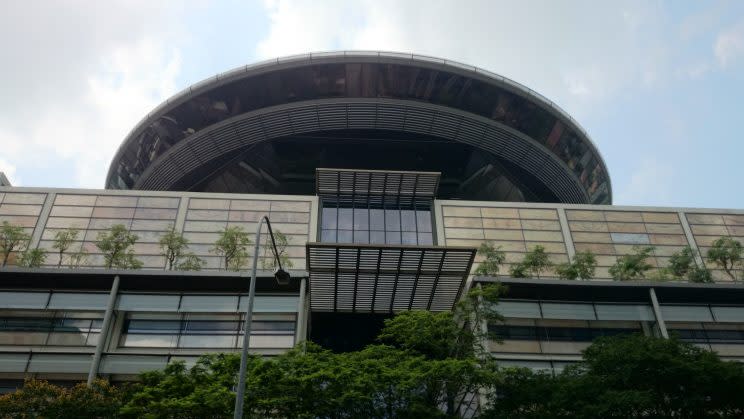Appeal court rules against Mindef in landmark Protection from Harassment Act case

File photo of the Supreme Court building
In a case that has taken several twists and turns, the Court of Appeal has ruled against the Ministry of Defence (Mindef) in a dispute over whether the government can be considered a “person” under the Protection from Harassment Act (PHA).
The Court delivered a split decision, with Judges of Appeal Andrew Phang and Chao Hick Tin in the majority and Chief Justice Sundaresh Menon dissenting.
Mindef was appealing a High Court ruling from December 2015 that the ministry cannot use the Act to make socio-political website The Online Citizen (TOC) remove statements made by inventor Ting Choon Meng over a patent rights dispute.
In a written judgement, Judges Phang and Chao said that Mindef had failed to cross the threshold requirement in proving that the government is a “person” under Section 15 of the PHA.
“We do not think that the applicant has demonstrated that it is just and equitable to grant an order against either Dr Ting or The Online Citizen.”
In addition, the Court said that “Mindef was anything but a helpless victim. It is a government agency possessed of significant resources and access to media channels.”
It is difficult to see what discernible impact that allegations in the TOC article could have had on Mindef’s reputation or public image, the Court added.
Nonetheless, the Court appeared to leave open the possibility that non-human entities can still seek recourse through the Section in future, where “an allegation ostensibly aimed at a corporate body might be, in substance, an allegation against human beings who manage that corporate body”.
“One cannot rule out the fact that recourse to Section 15 might be possible even in situations where false statements are directed against entities other than human beings,” the judges said, citing a list of factors to be considered such as the nature and purpose of the false statement, and whether the subject has the means to publicise his or her own version of the truth.
The Attorney–General’s Chambers, which acted on behalf of Mindef, had submitted that interpreting the words “any person” in Section 15 to include the government would serve the public interest.
According to the AGC, “it is incontrovertibly in the public interest that the Government should be able to effectively correct falsehoods attacking the integrity of our public institutions.”
Remy Choo, one of the lawyers acting on behalf of TOC and Ting, had argued in October that a judgement in favour of Mindef could empower the government to use the Act to curb online speech.
Dr Ting said after the Court’s ruling, “I’m glad that this episode is concluded and I’m grateful for the friends and family who have supported me over these two years. I have always believed that the Government shouldn’t be able to use the Harassment Act against the man in the street.”
This story has been updated to clarify recourse to Section 15 of the Protection from Harassment Act by non-human entities.



